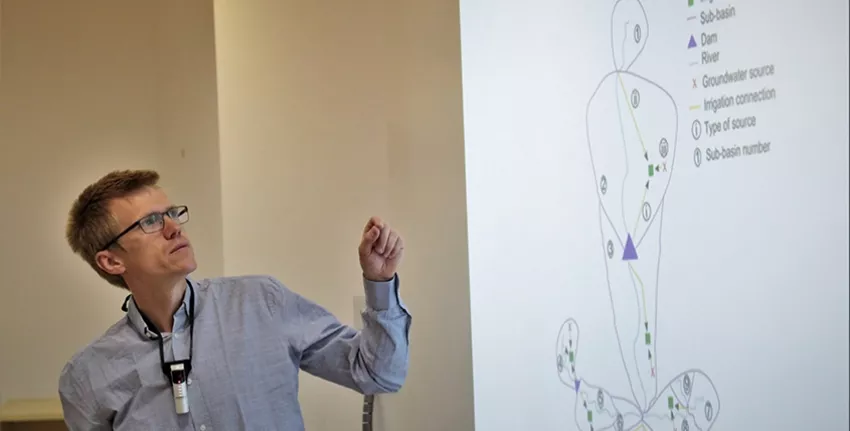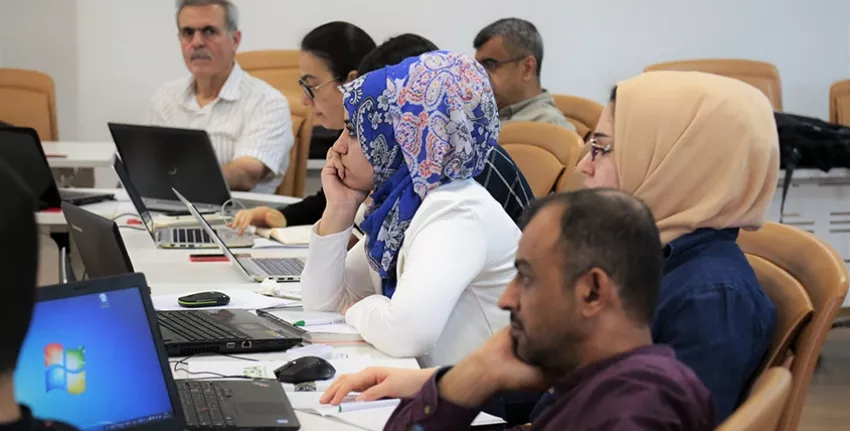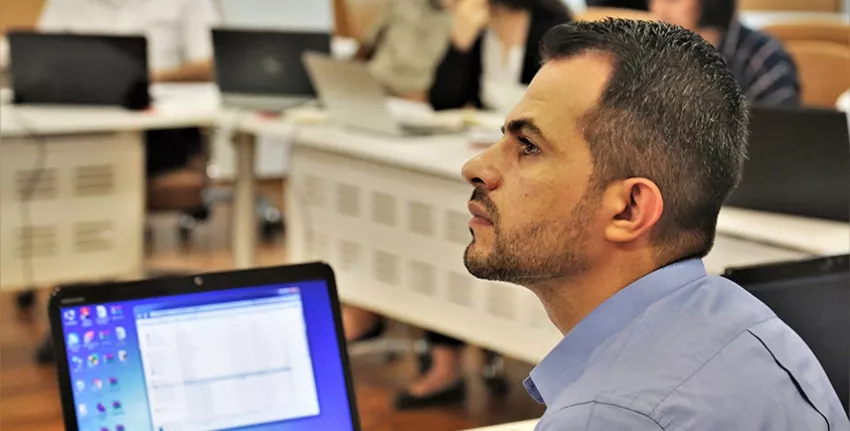Building capacities on water management in Euphrates-Tigris river basin
8 June 2017
The Euphrates and Tigris region is one of the world’s areas that are highly vulnerable to climate change. The riparian countries are interdependent and rely on water from the Euphrates–Tigris river system to maintain ecosystem goods and services, agriculture and energy production, municipal and industrial water supply, livelihoods and cultural resources. However, it is a system that suffers from salinity, land degradation and deteriorating marshlands and ecosystems.
To varying degrees, these problems are common to the countries that share the Euphrates–Tigris River Basin, that is Iraq, Turkey, Iran, Syria, Saudi Arabia and Jordan. As it is a transboundary river system, it is important to ensure effective regional collaboration to address the current and future challenges.
This is the mission of the Collaborative Programme Euphrates and Tigris (CPET) led by the International Center for Biosaline Agriculture (ICBA) along with several partners. The program aims to improve, among other things, dialogue and cooperation among three riparian countries of the Euphrates and Tigris rivers through increased access to information and knowledge transfer regarding water management in the region. The riparian countries have different levels of development, and capacity, in managing water on national and transboundary scales.
The CPET is designed to provide a rigorous evidence base to evaluate transboundary impacts and enable the identification of a range of water management options and a regional investment program. The thematic priority areas include hydrology and climate change, hydropower, water quality, agricultural water productivity, marshlands, and socioeconomics.
Under this program, ICBA and its partners implement different capacity-building activities in the region, which include technical training workshops in different countries. One such event was organized recently by ICBA and the Swedish Meteorological and Hydrological Institute (SMHI) for several partner organizations.
From 5 to 8 June 2017, around 10 participants from Turkey and Iraq took part in the training workshop on the Hydrological Predictions for the Environment (HYPE) model at ICBA in Dubai, the UAE. The workshop was aimed to build the capacity of technical teams working on hydrological and water quality modeling for the Euphrates and Tigris rivers. Participants learnt how, among other things, to set up the HYPE model, and run, calibrate and refine it.
The workshop was the third in a series of training events on the HYPE model for hydrology and water quality components, which had been attended by over 50 participants.
The CPET is a five-year program that has been implemented by ICBA since 2013 in cooperation with the Stockholm International Water Institute (SIWI), Euphrates and Tigris Country Partner representatives and four Implementing Partner Institutions such as the American University of Beirut (AUB), the International Center for Agricultural Research in the Dry Areas (ICARDA), Stockholm Environment Institute (SEI), and SMHI.













